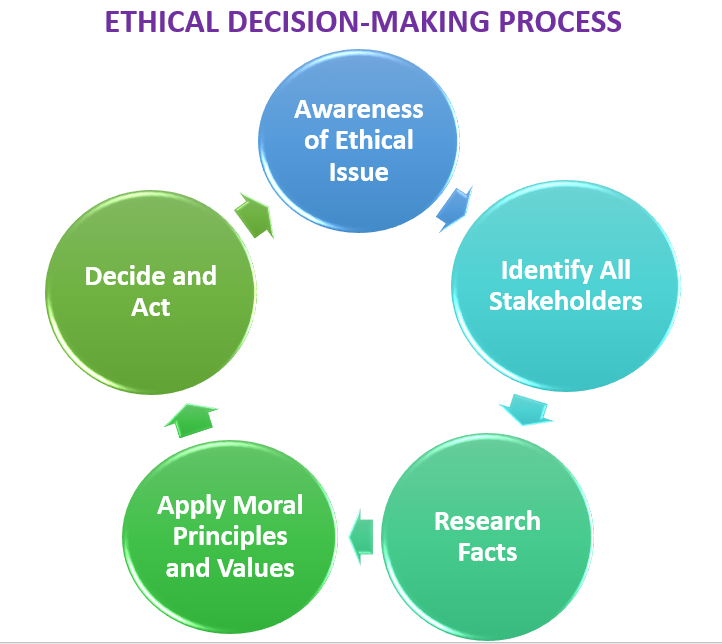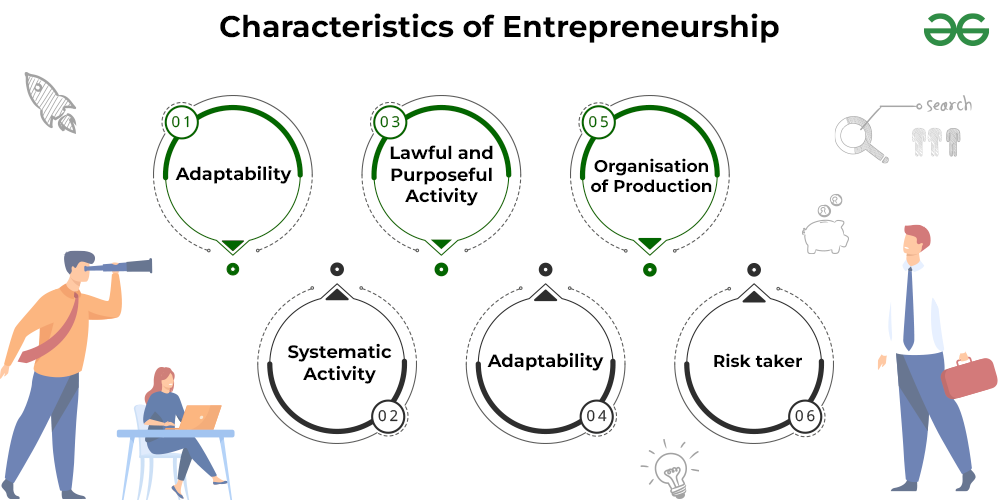Business ethics decision-making is a critical aspect of modern organizational leadership that demands a nuanced understanding of ethical principles amidst complex situations. As companies face increasingly intricate ethical dilemmas, such as those highlighted by high-profile cases like that of Sam Bankman-Fried and Elizabeth Holmes, the need for sound business decision strategies has never been more pertinent. Joseph Badaracco, a prominent figure in the study of ethical decision making, emphasizes that contemporary managers navigate a landscape filled with gray areas where moral and legal boundaries can blur. This evolving decision-making process requires leaders to consider not only the facts at hand but also the diverse opinions of stakeholders and the broader impacts of their choices. Ultimately, honing the ability to address complex ethical issues ensures that organizations can thrive while upholding their commitment to integrity and responsibility.
Engaging in ethical choices within the business realm is paramount for leaders striving for integrity and sustainability in their operations. Navigating these moral landscapes often involves applying frameworks for ethical decision-making that guide executives towards responsible outcomes. As outlined by thought leaders like Joseph Badaracco, the contemporary challenges in business decision-making require leaders to reconcile conflicting obligations and stakeholder perspectives. In a world defined by rapid technological advancements and social expectations, executives must reflect on their accountability and the ethical implications of their actions. Recognizing this evolving context allows for a deeper understanding of how companies can not only meet their legal obligations but also foster trust and ethical integrity within their industries.
Understanding Business Ethics in Today’s Environment
The landscape of business ethics has evolved significantly over the past few decades. Today, ethical considerations are not merely a reflection of applied moral philosophy but are increasingly intertwined with the complexities of global business operations. Firms must navigate an array of ethical dilemmas that are shaped by cultural differences, technological advancements, and regulatory frameworks. These multifaceted challenges require leaders to adopt comprehensive business decision strategies that prioritize ethical conduct alongside profitability.
One key factor in this evolution is the rising prominence of stakeholder interests. Unlike the past when corporations primarily focused on shareholder value, contemporary businesses find themselves accountable to a broader set of stakeholders, including employees, customers, and communities. This shift demands that executives engage with ethical decision-making frameworks that account for varying expectations and ethical standards across different regions and industries. Such an inclusive approach fosters a more humane business environment, promoting trust and sustainable growth.
The Decision-Making Process and Its Ethical Implications
The decision-making process in a business context is often fraught with ethical dilemmas, particularly when faced with complex ethical issues. As Joseph Badaracco highlights, modern executives must navigate through a spectrum of ethical considerations that are neither purely black nor white. This ambiguity necessitates a deeper reflection on what is practically responsible and what aligns with personal and organizational values. Understanding these dynamics is crucial to ensuring that decisions are made with integrity and foresight.
Furthermore, integrating ethical decision-making practices into the standard business decision strategy can lead to improved outcomes, both for the organization and its stakeholders. By assessing the implications of decisions across various dimensions — legal, cultural, and moral — leaders can cultivate an environment where ethical considerations guide everyday operations. The emphasis on reflection and engagement with diverse perspectives enhances the decision-making process, ultimately allowing for more informed and ethical choices.
Addressing Gray Areas in Ethical Decisions
In business, many decisions aren’t cut and dried; they exist in gray areas that present intricate ethical challenges. Badaracco points out that recognizing the complexity of these situations is essential. Leaders must develop the ability to differentiate between ethical dilemmas that require nuanced judgment and those where the right course is clear. Navigating these gray areas involves weighing multiple conflicting obligations and assessing the risks and potential consequences involved, making the decision-making process more complex than ever.
To effectively address these gray zones, executives can employ a structured framework that emphasizes critical thinking and reflection. Engaging in discussions with trusted advisors and stakeholders can provide valuable insights and help mitigate personal biases that often cloud ethical judgment. Ultimately, fostering a culture where ethical discussions are normalized can significantly impact the quality of decisions made in challenging situations, leading to more responsible outcomes.
The Role of Cognitive Bias in Ethical Decision-Making
Cognitive biases can significantly influence ethical decision-making, often leading individuals to interpret situations based on personal interests or preconceived notions rather than objective facts. For example, the case of Sam Bankman-Fried emphasizes how unexamined biases can cloud moral judgment, resulting in decisions that skirt ethical boundaries. To counteract this threat, business leaders must actively work to identify and mitigate these biases by seeking diverse input and fostering an open dialogue around ethical issues.
Additionally, implementing decision-making processes that focus on transparency and accountability can help safeguard against self-serving choices. By engaging in collaborative discussions and encouraging team members to voice differing opinions, organizations can create a more balanced perspective that emphasizes responsible action. This approach not only aids in making sound decisions but also cultivates a culture of ethical awareness where all employees understand the importance of integrity in their roles.
Reflection as a Tool for Ethical Decision-Making
Reflection plays a crucial role in ethical decision-making, as it allows decision-makers to process information and evaluate their choices thoroughly. Badaracco’s insights highlight that various forms of reflection—be it through quiet contemplation, exercise, or discussions with trusted colleagues—can enhance clarity and promote responsible action. Taking time to reflect ensures that executives can align their decisions with their core values and the ethical standards of their organization.
Moreover, a structured reflection process can help individuals prioritize what truly matters in complex situations. By framing decisions around essential questions such as “What are my central responsibilities?” and “What can I live with?”, leaders can ensure that their choices are grounded in ethical considerations. Cultivating this reflective practice within organizations not only bolsters individual decision-making but also fosters a collective commitment to uphold ethical standards across the board.
Navigating International Ethical Challenges
The globalization of business has introduced a myriad of ethical challenges that require leaders to be adaptable and culturally aware. As businesses expand beyond borders, executives must confront a diverse array of ethical standards and expectations that vary significantly across regions. The challenge lies in reconciling these differences while maintaining an ethical framework that aligns with the organization’s values. Leaders must boldly engage with these international ethical dilemmas to ensure the integrity of their decision-making processes.
To effectively navigate these challenges, companies should strive to develop comprehensive ethical guidelines that are flexible enough to accommodate local customs while upholding the core principles of the organization. Implementing rigorous training programs that emphasize cultural sensitivity and ethical decision-making can empower employees to understand and respond to diverse situations appropriately. This strategic approach not only mitigates potential ethical mishaps but also reinforces the company’s reputation as a socially responsible entity.
Leadership and Accountability in Ethical Decision-Making
Leadership plays a pivotal role in shaping an organization’s ethical climate. When leaders prioritize ethical decision-making and hold themselves accountable, they set a powerful example for their teams. This commitment to ethical conduct can influence organizational culture, fostering an environment where employees feel empowered to voice concerns and contribute to discussions around ethical dilemmas. Consequently, effective ethical leadership becomes essential for maintaining public trust and long-term success.
Moreover, accountability mechanisms can enforce ethical standards within organizations. Establishing clear guidelines for ethical behavior and integrating them into performance evaluations ensures that all team members understand the importance of upholding ethical values. Leaders must also encourage open dialogue about ethical concerns, allowing employees to anticipate and address potential issues before they escalate. By prioritizing ethical leadership and accountability, organizations can cultivate a robust ethical framework that underpins their decision-making processes.
The Importance of Continuous Ethical Education
In a fast-changing business landscape, continuous ethical education is vital for both aspiring and established leaders. As Joseph Badaracco suggests, understanding ethical foundations is not a one-time endeavor, but rather an ongoing journey that evolves with the complexities of the business world. Organizations must invest in professional development programs that focus on enhancing ethical awareness and decision-making skills, ensuring employees are equipped to navigate the intricate ethical challenges they may face.
Ethical education should encompass a variety of perspectives and real-world scenarios, allowing participants to engage with complex ethical dilemmas actively. Workshops, case studies, and discussions about recent ethical breaches in the business world can provide invaluable insights into identifying potential pitfalls and reinforcing the importance of ethical decision-making. By prioritizing ethical education, organizations not only enhance their decision-making capacities but also position themselves as leaders in corporate responsibility.
Developing a Culture of Ethical Responsibility
Creating a culture of ethical responsibility involves more than just establishing formal guidelines; it requires a commitment to integrate ethical considerations into the daily operations of the business. Leadership must actively promote ethical behavior by recognizing and rewarding employees who exemplify ethical decision-making. This recognition reinforces the value of integrity within the company and encourages a culture where ethical considerations are an integral part of the decision-making process.
Moreover, facilitating open channels of communication where employees feel safe discussing ethical concerns is paramount. This not only empowers workers to speak up but also fosters trust in leadership. By encouraging an environment of transparency, organizations can address potential ethical issues proactively, reinforcing the notion that everyone within the company shares a collective responsibility for upholding ethical standards. Such a culture not only mitigates risks but also enhances the company’s reputation and performance.
Frequently Asked Questions
What are the key components of ethical decision making in business?
Ethical decision making in business involves several key components, including identifying the stakeholders affected by the decision, recognizing the ethical principles involved, and evaluating possible options. Business leaders should consider factors such as fairness, respect, and legal compliance, while also reflecting on complex ethical issues that may arise in the decision-making process.
How can business decision strategies enhance ethical decision making?
Business decision strategies enhance ethical decision making by providing frameworks that guide leaders through complex ethical issues. These strategies often incorporate stakeholder analysis, risk assessment, and ethical guidelines, allowing decision-makers to navigate dilemmas effectively and consider the broader implications of their choices.
What role does Joseph Badaracco play in the field of business ethics decision making?
Joseph Badaracco is a prominent figure in the field of business ethics decision making, known for teaching at Harvard Business School and for his contributions to developing ethics curricula. His work emphasizes a practical, problem-oriented approach to ethical dilemmas, helping future leaders understand the nuances of complex ethical issues.
Why is it important to acknowledge complex ethical issues in business decision making?
Acknowledging complex ethical issues in business decision making is crucial because it allows leaders to confront uncertainties and conflicts that can arise in ethical dilemmas. By recognizing these complexities, decision-makers can engage in more thorough analysis and reflection, ultimately leading to more responsible and informed decisions.
How can leaders effectively analyze ethical dilemmas during the decision-making process?
Leaders can effectively analyze ethical dilemmas by utilizing structured approaches such as stakeholder analysis, ethical frameworks, and practical reflections on consequences. By focusing on critical facts, legal obligations, and the broader impact on stakeholders, leaders can make more informed and ethical decisions even in gray areas.
What are some strategies to avoid cognitive biases in ethical decision making?
To avoid cognitive biases in ethical decision making, leaders should seek diverse perspectives from colleagues, engage in critical discussions about ethical implications, and actively reflect on their decision-making processes. Collaborative analysis can help illuminate biases and ensure decisions are made based on a comprehensive understanding of the situation.
How do changing circumstances impact ethical decision making in business?
Changing circumstances can significantly impact ethical decision making by introducing new information, altering stakeholder interests, or shifting public opinions relating to ethical standards. Leaders must remain adaptable and continuously reassess their decisions, ensuring they align with evolving ethical norms and responsibilities.
What is the importance of reflection in the ethical decision-making process?
Reflection is vital in the ethical decision-making process as it helps leaders clarify their values, consider the potential consequences of their actions, and gain insights into their motivations. Regular reflection allows decision-makers to better understand their responsibilities and enhance their ability to navigate complex ethical issues effectively.
| Key Points | Details |
|---|---|
| The Changing Landscape of Business Ethics | Business ethics have evolved from applied moral philosophy to a more complex process that factors in circumstances and situations. |
| Complex Decision-Making | Executives now face multi-layered ethical dilemmas involving various stakeholders, making decision-making processes more intricate. |
| Gray Areas in Decision-Making | Many ethical decisions fall into gray areas where personal judgment is crucial, as opposed to clear right or wrong. |
| Avoiding Cognitive Biases | Executives should work collaboratively and focus on critical analysis to mitigate biases in gray-area decisions. |
| Reflection in Decision-Making | Executives engage in various reflective practices to clarify their thinking and approach complex decisions thoughtfully. |
Summary
Business ethics decision-making has become increasingly intricate in today’s fast-paced and interconnected world. Leaders must navigate complex relationships with various stakeholders while addressing legal and ethical responsibilities. By approaching decisions with careful reflection and collaboration, they can mitigate cognitive biases and make more responsible choices, ensuring that they align with both ethical standards and practical outcomes.



